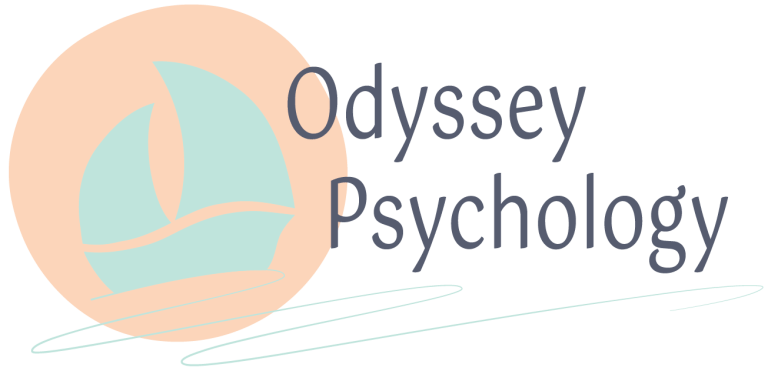Depression

Our Sunshine Coast Based Psychology Clinic Can Help You with Depression
What is Depression?
Depression is one of the most common mental health issues in Australia. More than one in seven people suffer from depression at any one time. Depression can significantly impact a person’s life by draining them of energy and motivation, disrupting sleep and thinking, and causing painful emotions of sadness, guilt, and shame. This can make it difficult to function at work and school and disrupt relationships with friends and family. The causes of depression are complex and involve many biological, psychological, emotional, and social factors. The good news is that depression can be successfully treated with various therapies to decrease negative thoughts and improve mood.
Depression Symptoms
- Lack of energy
- Body feels heavy, slow, and/or sluggish
- Feeling of emptiness or hollowness
- Changes in weight (weight gain or weight loss)
- Agitation
- Feel irritated by others and quick to ‘snap’
- Migraine headaches
- Muscle limpness or excessive tiredness
- Procrastination
- Ruminating (i.e., reoccurring thoughts and regrets)
- Self-criticism and blame
- Thought of self-harm and/or suicide
- Thoughts of uselessness, hopelessness, and/or meaningless
- Loss of concentration and mental clarity (e.g., ‘brain fog’ or you mind going blank)
- Mental confusion and indecisiveness
- Thoughts of death
- Increased pessimism
- Crying
- Social isolation
- Avoidance of social situations
- Lack of motivation
- difficulty to experience pleasure
- Unable falling asleep or waking during the night
- Overly tired and sleeping more than usual or increased day napping
- Changes in appetite (increase or decrease in food consumption; increase in unhealthy food choices)
- Increased use of alcohol, cannabis, or other drugs
- Self-attack and punishment (e.g., risky behaviour or self-harm)
- Excessive sadness most days
- Inappropriate guilt
- Excessive grief
- Shame
- Emotionally detachment
- Difficulties dealing with interpersonal conflict


Reasons People Seek Therapy for Depression
It is normal to experience sadness occasionally, however, persistent feelings of sadness, guilt, grief, and meaningless can be immobilising and be a tremendous burden to carry alone. Depression is a vortex that pulls one into its depth, draining them of energy, motivation, will, and hope; making it very difficult to return.
Some common reasons people start anxiety treatment include
- lack of motivation or concentration,
- changes in sleep or appetite
- overly self-critical
- feeling hopeless, lost, and lack meaning
If you are struggling with any of these depressive symptoms, then please reach out to us for help. Odyssey Psychology can help guide you back to your path and to find meaning so you can live a fulfilling life.
How Psychology Treatment and Therapy Can Help with Depression
Beginning treatment for depression can be difficult and confronting. It requires finding the energy to attend appointments and build a relationship with your therapist and requires having hope for your future. If you are considering taking back control of your life and fighting back against depression, then we want to remind you that you are not alone! We are here to help you through the journey.
The good news is that depression can be successfully treated with various therapies that aim to decrease negative symptoms of depression and improve mood. Therapy for depression can help you to regain energy and motivation, decrease self-criticism and rumination, and increase the enjoyment of life again.

Depression Treatment Options
There are several evidence-based treatments that are available for people struggling with depression. During your first appointment, you and your therapist will decide what type of depression treatment will best suit your needs and treatment goals. Below are a several types of treatment approaches for depression (this is not an exhaustive list).
Cognitive Behavioural Therapy is one of the most used treatments for depression. CBT includes a collection of interventions borrowed from other evidenced based treatments (e.g., mindfulness and behavioural therapy). CBT helps people with depression understand the relationship between their thoughts, emotions, physical sensations, and behaviours. This helps build awareness of how depression symptoms are continued and what needs to be done to break the cycle of depression. The length of CBT treatment for depression varies depending on the severity of symptoms. It is not uncommon for symptoms to improve within 8 session of CBT, however, 20 or more session may be needed for more severe depression symptoms.
Acceptance and Commitment Therapy is a behavioural therapy that is rooted in the concept of mindfulness (e.g., acceptance of the present moment). The goal of ACT is to learn to accept thought and the present moment without judgement. ACT also encourages the development of personal values and setting personal goals that are in line with one’s values. You can read more about ACT here.
Research for the effectiveness of ACT is still underway. So far, ACT has been shown to have similar effectiveness compared to CBT for mild depression symptoms. Long term positive outcomes of ACT may reduce overtime after treatment ends and occasional “booster session” may be required.
Intensive Short-Term Dynamic Psychotherapy (ISTDP) is an emotionally focused and experiential based therapy belonging to the psychodynamic therapy family. Despite there only being a few studies looking at the benefits of ISTDP for depression, they have shown promising results. One study found that 20 sessions of ISTDP helped reduce depression scores by 50% after 6 months and 40% of participants sustained full remission after 18 months. Another study found a similar reduction in depressive symptoms which lasted at least 12 months after 15 sessions of ISTDP.
Mindfulness is the process of directing your attention to the present moment. Mindfulness is a basic principle that principle of all psychological therapies. One must be self-aware of their behaviours, thoughts, and beliefs before being able to make any conscious change.
Mindfulness is included as a component of CBT treatment for depression and mindfulness is a core principle of ACT treatment for depression.
However, research has shown that mindfulness-based therapy can used as a standalone treatment for depression. Mindfulness is moderately effective for reducing depressive symptoms and has similar effectiveness when comparable to CBT.
Are you ready to take back control?
We are here to help. You can contact us by phone or email if you are ready to start therapy or if you would like to find out more about how therapy can help relieve symptoms of depression.
Telehealth and online therapy for anxiety
Telehealth therapy for depression is available in some circumstances if getting to the clinic in Maroochydore, on the Sunshine Coast, is too difficult (e.g., you live too far away, you don’t have transportation, or your level of depresion makes it difficult to leave your home). Please contact us for details if you would like to learn more or schedule an appointment.
